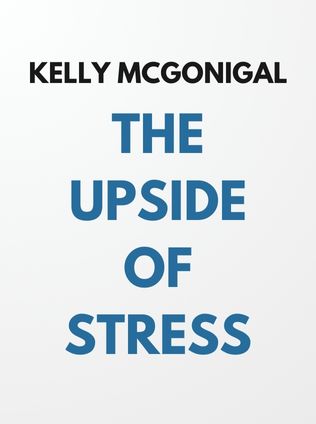
The Upside of Stress
Why Stress Is Good for You, and How to Get Good at It
By Kelly McGonigal
Published 03/2012
About the Author
Kelly McGonigal is a health psychologist and lecturer at Stanford University, renowned for her work in the fields of stress, psychology, and health. She earned her Ph.D. from Stanford, where she has taught for many years, and her research focuses on the mind-body connection and how psychological and social factors influence health. McGonigal's insights into stress, willpower, and the power of mindset have earned her international recognition, including a TED Talk titled "How to Make Stress Your Friend," which has been viewed millions of times.
McGonigal's approach is characterized by a deep understanding of the latest scientific research, combined with a commitment to making this knowledge accessible and practical. She is the author of several books, including "The Willpower Instinct" and "The Joy of Movement," both of which, like "The Upside of Stress," focus on harnessing our innate capabilities to improve our lives. Her work is a blend of cutting-edge science, compassion, and an inspirational belief in the power of positive change.
Main Idea
In "The Upside of Stress," Kelly McGonigal challenges the widely held belief that stress is a toxic force to be avoided at all costs. Instead, she presents a compelling argument that stress, when understood and managed correctly, can be a powerful catalyst for growth, resilience, and connection. McGonigal suggests that our mindset about stress—whether we view it as harmful or as an opportunity—determines its impact on our lives. By shifting our mindset, we can transform stress from a destructive force into a source of courage, strength, and meaning.
McGonigal draws on a wealth of scientific research to support her thesis, including studies that show how people who believe stress is harmful are more likely to suffer negative health outcomes, while those who view stress as a challenge or opportunity are more likely to thrive. She also explores the different types of stress responses—such as the fight-or-flight, challenge, and tend-and-befriend responses—and how each can be harnessed for positive outcomes. Through practical advice, real-life examples, and deep analysis, McGonigal empowers readers to embrace stress and use it as a tool for personal growth.
Table of Contents
- Understanding Stress
- The Power of Mindset
- Embracing Stress for Growth
- The Different Faces of Stress: Fight-or-Flight, Challenge, and Tend-and-Befriend
- Transforming Stress into a Positive Force
- Practical Strategies for Shifting Your Stress Mindset
- Living a Meaningful, Stress-Embracing Life
Understanding Stress
McGonigal begins by redefining stress, moving away from the traditional notion that it is purely harmful. She explains that stress is a natural response when something we value is at stake. This can range from immediate physical danger to more abstract challenges like meeting a deadline or navigating a difficult conversation. The key, she argues, lies not in the presence of stress itself but in how we perceive and react to it.
"Stress happens when something you care about is at stake." - Kelly McGonigal
This new understanding of stress is critical because it opens up the possibility of seeing stress as something that can be harnessed for good. Instead of fearing stress and trying to avoid it, McGonigal suggests that we can use it as a signal that something important is happening, a signpost that can guide us toward what truly matters in our lives. By reinterpreting stress in this way, we can begin to change our relationship with it.
The Power of Mindset
One of the central ideas in "The Upside of Stress" is the concept of mindset—the set of beliefs and attitudes we hold about ourselves and the world around us. McGonigal draws heavily on the work of psychologist Carol Dweck, who popularized the idea of a "growth mindset." In the context of stress, McGonigal argues that our mindset can fundamentally alter how stress affects us. If we believe that stress is harmful, it is more likely to harm us. Conversely, if we see stress as a challenge or an opportunity for growth, it can become a powerful, positive force in our lives.
Sign up for FREE and get access to 1,400+ books summaries.
You May Also Like
The Subtle Art of Not Giving a F*ck
A Counterintuitive Approach to Living a Good Life
By Mark MansonRich Dad Poor Dad
What the Rich Teach Their Kids About Money - That the Poor and Middle Class Do Not!
By Robert T. KiyosakiHow To Win Friends and Influence People
The All-Time Classic Manual Of People Skills
By Dale CarnegieFreakonomics
A Rogue Economist Explores the Hidden Side of Everything
By Steven D. Levitt and Stephen J. Dubner



















